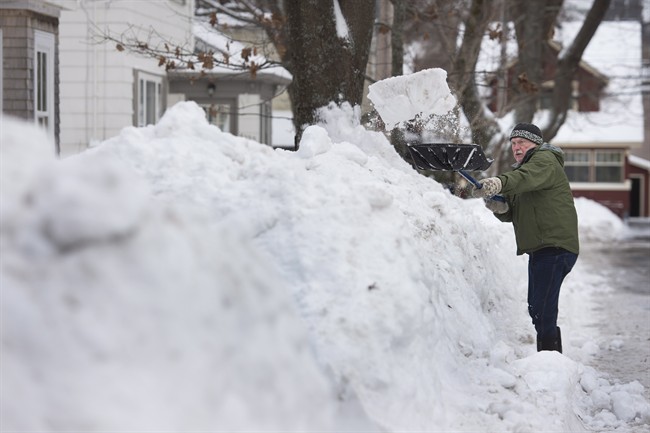While many people have heard the phrase “don’t eat yellow snow” a new study from McGill University researchers suggests avoid eating snow altogether.

Dr. Parisa Ariya, professor of chemistry and atmospheric sciences at McGill, and her team of scientists found that snow in urban areas can absorb toxic and carcinogenic pollutants that come from car exhaust.
The study published in the December issue of Environmental Science: Processes & Impacts, examined how freezing temperatures and snow affect exhaust-derived particles and organic pollutants.
READ MORE: Asbestos-related cancers on rise says StatsCan
“In Canada we have lots of snow and ice. In Montreal we generally get five months of snow,” said Ariya. “This is a very different scenario than talking about air pollution in Texas.”
Ariya and her team measured levels of typical exhaust chemicals, like benzene, toluene, and xylenes, by putting the snow and exhaust fumes in a chamber.
The researchers discovered snow efficiently removed pollutant particles from the air.

Get weekly health news
“When you put the fresh fallen snow from Montreal at different temperatures you recognize the aerosol distribution changes significantly,” Ariya said.
Some of the chemicals that end up in the snow are well-known carcinogens. For example, benzene, found in gasoline, crude oil and cigarettes, can cause leukaemia, non-Hodgkin’s lymphoma and other significant health problems, according to the World Health Organization. Toulene, a common gasoline additive, can damage the central nervous system.
READ MORE: Why you should eat healthy fats, ditch bad fats to protect your heart
“These findings demonstrate that the interaction of gasoline internal combustion exhaust with snow and the effect of cold temperature have a potential to influence human health and environmental effects associated with exposure to exhaust-derived air pollution,” the study said.
Ariya says while she doesn’t recommend eating snow in urban areas, she also doesn’t want to be an “alarmist.”
Ariya says she hopes the study will lead to a greater discussion about public health and air pollution.










Comments